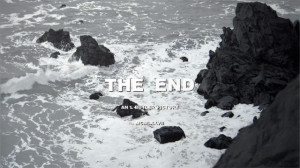I go to the movies alone. Though after decades of filmgoing, the experience can now seem rather deflating. The number of trailers has expanded to take up a mini-festival’s worth of time; antiseptic cineplexes have supplanted luxurious movie palaces and earnest local houses alike; and pre-film commercials have reared their strident head. The price of Twizzlers has inflated faster than the cost of health care, and every company who’s had a hand in a film now seems to merit its own ostentatious logo before the opening credits. By the time the movie actually starts, I’m exhausted.
And yet I go. The thrill is diminished, not gone. A sense of promise remains — the transfixing spectacle of flickering lights and the anticipation of a kind of sorcery, a literally and figuratively larger than life Dream commanding awe and wonder. Attending a film alone only amplifies the transaction taking place, the tunnel vision connecting the fictitious and the real.
But I want to talk about a time when the routine of going alone turned dark. Or rather, a time before I understood the nature of my relationship to the movies. As a young man, I suffered from a particular vulnerability to the Dream induced by moving pictures, and I sought it out whenever I could. I’d inherited the yearning from my father, who’d been afflicted to such a degree that eventually his sole frame of reference for people he encountered in real life became the Hollywood types he’d absorbed into his worldview. Unable to distinguish three-dimensional individuals from the flattened formsfound in films, he relied on those talking shadows sent by the central casting office of his mind as a way to experience the world. He might mentally superimpose upon a policeman in the street the buffoonish persona of the character actor Edgar Kennedy. In an Irishman, no matter how adulterated an accent, he could only hearBarry Fitzgerald. Italian waiters were Chico Marx. And should someone look like a Sheldon Leonard or a John Carradine, knowing suspicion was the only appropriate response.

Luke Butler, The End VII, 2012; courtesyof the artist and Jessica Silverman Gallery
The phenomenon was more symptom than cause, I suspect, but let’s say at the very least the movies helped exaggerate a serious emotional flaw. But back then, I did not recognize obsessive, solo moviegoing as a potential spiritual hazard. I must have cut a strange figure — you don’t see a lot of young people slouching in the dark alone at a retro house. But the craving for the Dream was something I preferred to satisfy in private. If accompanied by friends or lovers, they only served as the beards for my deep attachment to the action on screen. Social obligation could prove a distraction, and sitting next to someone might imperil the purity of the Dream. There is no accounting for individual perception, and an inconvenient laugh overheard during a moment of cinematic pathos might weaken my communion with what was happening on the screen.




